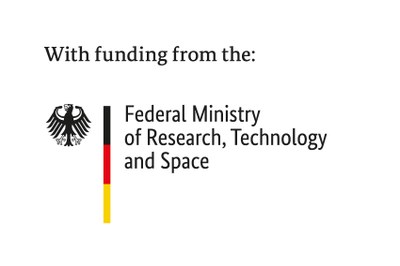Energy Systems Technology
The Energy Systems Technology department focuses on the interaction between system-relevant technologies within decentralised networked structures, particularly at the low-voltage and medium-voltage level.
Complete orchestration of system components for an efficient green hydrogen infrastructure (SYstemic approach for STOrage and GENeration)

BMFTR
In the course of the implementation of the national hydrogen strategy, the Federal Ministry of Research, Technology and Space has launched three leading hydrogen projects. In the project SYSTOGEN100, the DLR Institute of Networked Energy Systems is working on an application-oriented, holistic composition of necessary components for an efficient infrastructure to produce “green” hydrogen. The results will serve the lead project H2Giga which combines more than 130 institutes in business and science in a total of almost 30 independently operating groups.
Research project SYSTOGEN100 | |
|---|---|
Duration | May 2021 to December 2025 |
Funded by | Federal Ministry of Research, Technology and Space |
Project participants |
|
The objective of the project is the orchestration of energy systems with electrolyzers. The orchestration represents the designing, financing and operation of the energy systems. Within the project, different customer demands on hydrogen as well as hydrogen-based energy products and services will be addressed. For this, an application-specific design of the components and a control platform for operation will be developed in order to create a long-term investment security for the financing of such energy systems.
In terms of the design and operation optimisation, a model is developed which allows an independent use from the control platform. Additionally, an existing financial tool will be expanded with products for large-scale elecrolyzer systems. For these models, a large number of input data is necessary, which are aggregated, analyzed and evaluated beforehand. Furthermore, forecasting methods play a significant role for both a long-term design decision and a short-term operation decision. The control platform will be demonstrated within a validation and evaluation process during the project. Since hydrogen-based energy systems are not sufficiently being considered by present regulations yet, recommendations for action will be developed for the transformation within the legal framework.
With its department of Energy Systems Technology, the Institute of Networked Energy Systems develops algorithms and methods for the design and operation optimisation. In this context, load forecasting methods are developed and uncertainty studies are executed which are necessary for the predictability of the orchestrated operation as well as for the design of the energy system components. With its department Energy System Analysis, the institute explores the transferability of the results and puts those in the national context. Both departments can build on the developed methods and models from existing projects such as ENaQ or KEROSyN100.
